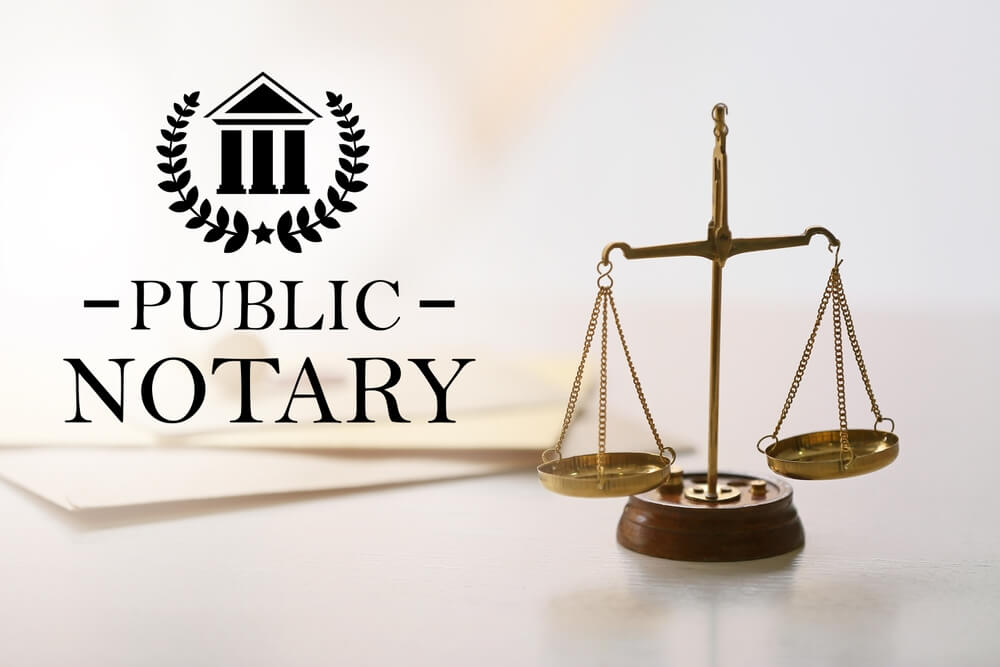Debunking Notarial Job: Simplifying the Duty and Significance of Notaries
Their function, often shrouded in mystery for several, lugs substantial weight in guaranteeing the validity and honesty of critical files. By unwinding the complexities surrounding notarial techniques and dropping light on the value of their acts, a clearer understanding arises of the vital role notaries play in upholding the textile of contractual and legal arrangements.
The History of Notarial Job
Just how did notarial work evolve over time to become an important part of legal and organization purchases? The history of notarial job dates back to old human beings, where scribes played a crucial function in recording crucial details and validating records. As cultures proceeded, the need for a more formalized system to make certain the legitimacy of agreements emerged. This resulted in the growth of notaries, people selected by the state to act as objective witnesses in lawful issues.
Throughout the Center Ages, notaries got importance in Europe, with their features expanding to consist of drafting legal papers, licensing trademarks, and protecting documents. The increase of global trade further emphasized the value of notarial operate in verifying agreements and arrangements throughout boundaries.
In the modern age, notaries remain to play an essential duty in legal and organization transactions by verifying identities, verifying the credibility of files, and preventing fraud. Their duty in certifying the validity of agreements includes a layer of safety and trust to the ever-evolving landscape of commerce and regulation.

Obligations and Duties of Notaries
The historic evolution of notarial job from ancient worlds to the modern period has formed the unique duties and duties that notaries promote in legal and business transactions today. Notaries play a vital role in verifying the credibility of files and the identity of signatories. Among their main responsibilities is to witness the signing of vital papers, such as acts, contracts, and wills, to guarantee that all parties are getting in into contracts intentionally and willingly. Notaries additionally verify that signatures are of sound mind and not under duress or browbeating.
They accredit duplicates of initial records, giving guarantee to organizations that the copies are true replicas of the originals. Overall, the obligations and duties of notaries are essential in safeguarding the stability and legitimacy of different files and transactions - Notary.
Notarial Certificates and Signatures
Exhibiting meticulous focus to information, notarial certificates and signatures offer as necessary elements in validating the credibility of lawful papers. Notarial certificates generally contain important information such as the day of notarization, the names of the signatories, a description of the record, and the notary's main seal. These certificates supply a clear document of the notarial act, guaranteeing that the document can be quickly determined and traced back to the notary that supervised the procedure.
Signatures play a crucial function in notarial work, as they indicate the agreement and approval of the celebrations involved. Notaries carefully witness the finalizing of files to validate the identity of the notaries and verify that they are authorizing of their own free choice. By attaching their official seal and trademark to the document, notaries accredit that the required treatments have been complied with which the paper is enforceable and valid.
In significance, notarial certificates and signatures are the trademark of credibility in lawful transactions, supplying assurance to all celebrations involved that the records are legit and binding.
Importance of Notarial Acts

Registration Refine Described
The notarization process typically starts with the specific providing the document to a notary public. When the identification is confirmed, the notary ensures that the specific signing the paper does so voluntarily and without any threat.

Verdict

Notarial certificates commonly have crucial details such as the date of notarization, the names of the signatures, a description of the file, and the notary's main seal. These certificates give a clear document of the notarial act, making certain that the file can be quickly recognized and mapped back to the notary who looked after the process.
By attaching their main seal and trademark to the document, notaries accredit that the essential procedures have been followed and that the paper is enforceable and legitimate.
By confirming the identification of the signatories, validating their desire to get in right into the agreement, and accrediting the day and area of the finalizing, notaries play a vital duty in maintaining the validity of lawful records.After the file is authorized, the notary will attach their official seal or stamp onto the record.